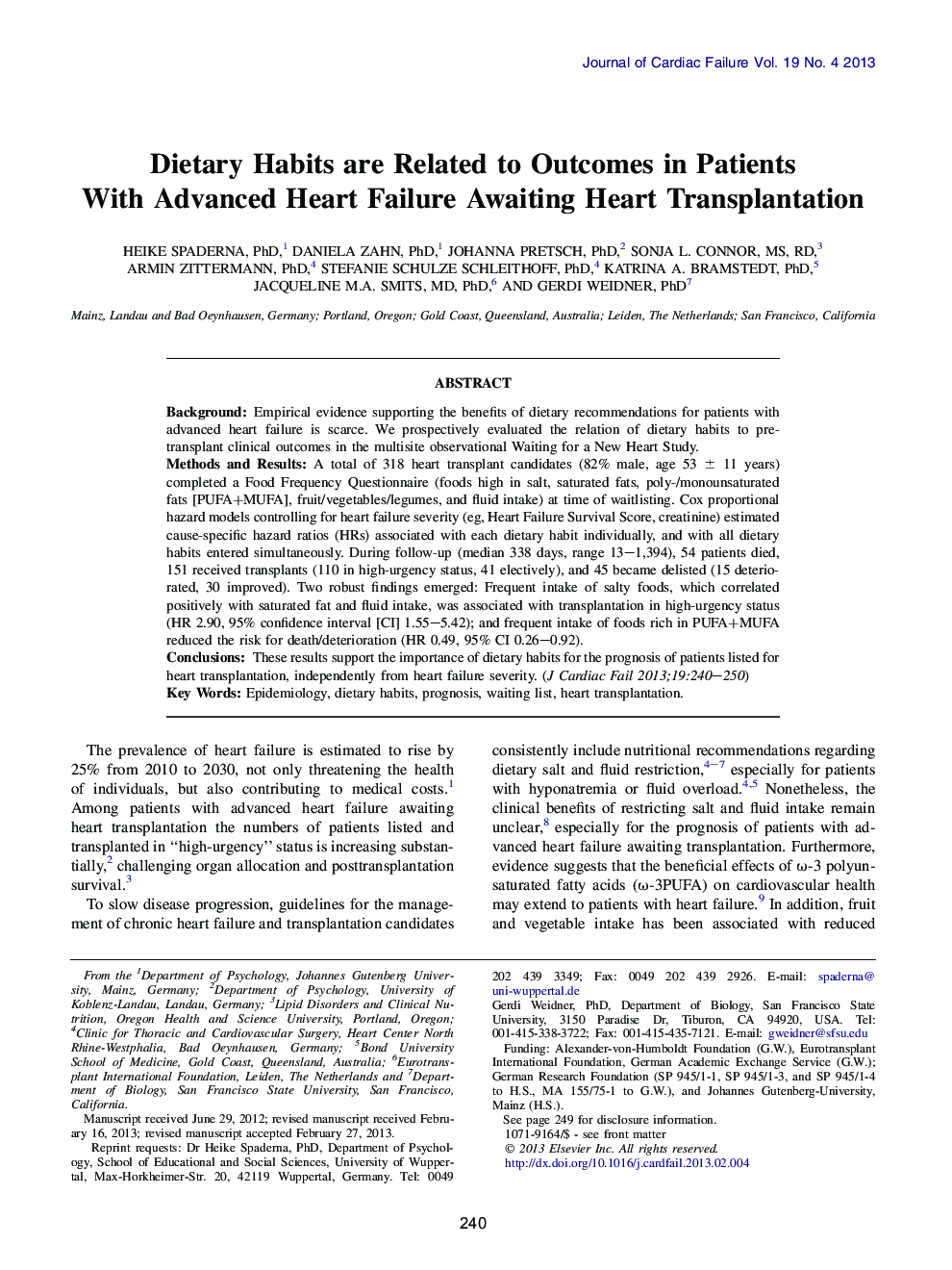| Article ID | Journal | Published Year | Pages | File Type |
|---|---|---|---|---|
| 2959236 | Journal of Cardiac Failure | 2013 | 11 Pages |
BackgroundEmpirical evidence supporting the benefits of dietary recommendations for patients with advanced heart failure is scarce. We prospectively evaluated the relation of dietary habits to pre-transplant clinical outcomes in the multisite observational Waiting for a New Heart Study.Methods and ResultsA total of 318 heart transplant candidates (82% male, age 53 ± 11 years) completed a Food Frequency Questionnaire (foods high in salt, saturated fats, poly-/monounsaturated fats [PUFA+MUFA], fruit/vegetables/legumes, and fluid intake) at time of waitlisting. Cox proportional hazard models controlling for heart failure severity (eg, Heart Failure Survival Score, creatinine) estimated cause-specific hazard ratios (HRs) associated with each dietary habit individually, and with all dietary habits entered simultaneously. During follow-up (median 338 days, range 13–1,394), 54 patients died, 151 received transplants (110 in high-urgency status, 41 electively), and 45 became delisted (15 deteriorated, 30 improved). Two robust findings emerged: Frequent intake of salty foods, which correlated positively with saturated fat and fluid intake, was associated with transplantation in high-urgency status (HR 2.90, 95% confidence interval [CI] 1.55–5.42); and frequent intake of foods rich in PUFA+MUFA reduced the risk for death/deterioration (HR 0.49, 95% CI 0.26–0.92).ConclusionsThese results support the importance of dietary habits for the prognosis of patients listed for heart transplantation, independently from heart failure severity.
